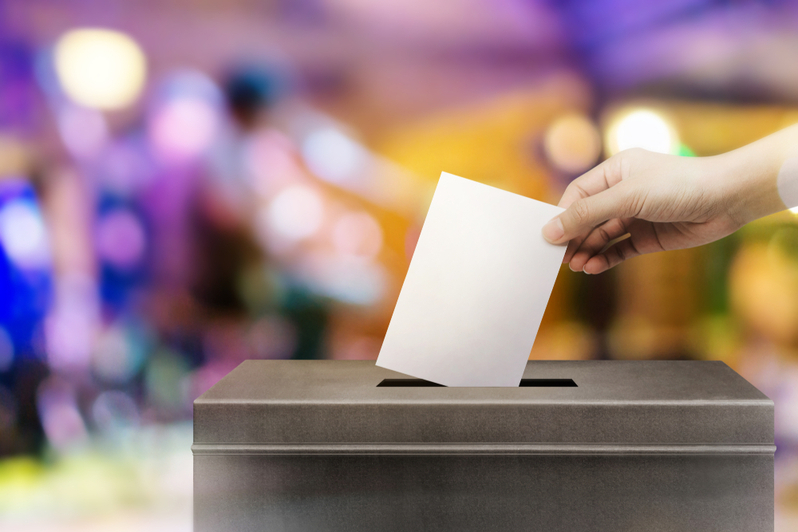

Last November, when Louisiana held its statewide election, something truly unique and historic happened. More than 36,000 Louisiana residents were eligible to vote for the first time in years, sometimes decades. They all shared the same reason for having been prevented from voting for so long: they were ex-felons.
In 2018, Louisiana lawmakers voted to restore the voting rights of ex-felons who haven’t been in prison for at least the last five years. After Gov. John Bel Edwards signed the bill into law, it went into effect in March 2019 and those qualified ex-felons had the opportunity to vote in races for governor and other statewide offices, Congress, and local offices last fall.
What convinced the legislature to make this change, and what does it mean for those inmates who will soon be getting paroled?
Why Did Louisiana Restore Ex-Felon Voting Rights?
Louisiana’s new law follows a trend in recent years to restore voting rights to those who have been incarcerated. In fact, laws that ban ex-prisoners from voting date back to the colonial era, and were in place in most of the country. Louisiana was no exception. The state Constitution banned anyone “under an order of imprisonment” for a felony conviction from voting, and in 1976 the state Legislature expanded that to also cover inmates who had been convicted of a felony and were on probation or parole. The U.S. Supreme Court upheld these laws, ruling in 1974 that felon disenfranchisement was constitutional under the 14th Amendment.
Up until the 1990s, only 16 states and the District of Columbia automatically allowed those convicted of felonies to get their voting rights restored. But since 1996, a growing number of states have revised their voting rights laws to re-franchise ex-felons, including Arizona, California, Kentucky, Nevada, New Jersey, and New York. Doing so has added potentially millions of people to the voting rolls across the country. The Sentencing Project, which works to restore the voting rights of ex-felons, released a study indicating that during the 2016 presidential elections, more than 6 million people were unable to cast a ballot because their state prohibited it based on their felony conviction.
When Louisiana became the latest state to reconsider its ban on ex-felon voting rights, many of the arguments made by advocates in other states were echoed here. Rep. Pat Smith, D-Baton Rouge, who authored the bill, noted that ex-felons deserve a second chance once they’ve completed their prison term.
“They pay their taxes, but they don’t even get a chance to vote for you as their representative or any other person,” Smith said. “All we’re trying to do is give them the right to vote — most of them say — before they die.”
The bill’s supporters also made the argument that voting has long been considered a cornerstone of any democracy.
What Does the New Bill Do For Ex-Felons?
The bill finally passed on its third go-round in the Legislature, having been rejected twice before. The Louisiana House of Representatives voted 54-42 for the bill, which restored voting rights to most felons who are on probation or parole five years after they leave prison, impacting an estimated 36,000 Louisiana residents. The Louisiana Senate had already approved the bill, and the House had to agree to a change made by the Senate that excluded people convicted of election fraud or other elections-based felonies from getting reinstated.
The vote was also significant since Louisiana has maintained one of the highest incarceration rates in the nation. In future years, more of the state’s ex-felons are likely to join their local voting rolls once they get released, making this one of the largest voting rights advances in decades.
At the same time, independent advocacy groups began working to register as many of those ex-felons as possible to vote. The first step in the process is for felons to get a form from their probation or parole officer, sign and deliver it to their community’s voter registrar office.
Secure Proven Legal Representation For Your Case Today
If you’re an ex-felon who is trying to get your civil rights restored, there is additional help available. In Louisiana, a top source for criminal defense attorneys is the John D. & Eric G. Johnson Law Firm. We have more than 25 years of experience representing ordinary citizens just like you and want to help you get your life back on the right track. It’s our mission to give you the most personalized experience possible and help you have your voice heard.
Eric Johnson is respected throughout Louisiana and is known for providing solid representation that wins cases. He is a member of the Louisiana Bar Association and the National Association of Criminal Defense Lawyers, with a successful track record of helping clients facing misdemeanor, felony, and even federal charges.
To schedule a free consultation regarding your case, call our office at 318-377-1555 or contact us online today. We’re here to represent you!
